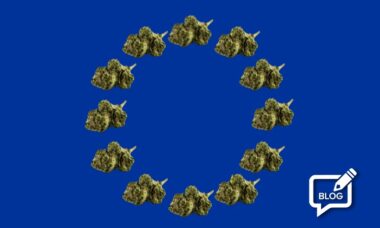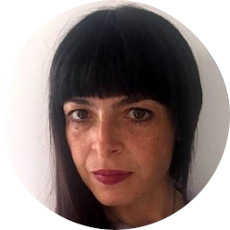 Will healthcare and food safety be among the main concerns of the next European Commission during the second mandate of president Ursula von der Leyen?
Will healthcare and food safety be among the main concerns of the next European Commission during the second mandate of president Ursula von der Leyen?
Some fear this will not be the case after von der Leyen unveiled the composition of the new Commission and the commissioners’ respective tasks to the European Parliament earlier this month in Strasbourg.
First of all, based on Von der Leyen’s statement, healthcare and food safety will definitely not be among the 2024-2029 Commission’s official “core priorities”, which will reportedly be “built around prosperity, security and democracy” and backdropped by competitiveness.
Second, the portfolio of tasks assigned to each commissioner-designate differs slightly from their predecessor’s, meaning there will be no commissioner officially in charge of Health and Food Safety, as is the case with outgoing commissioner Stella Kyriakides.
Unfit for the job?
If Von der Leyen’s nominees are approved by the European Parliament, Cypriot commissioner Kyriakides, whose background is in mental health and cancer advocacy and who led the European Commission Directorate General for Health and Food Safety when, in 2022, the European Parliament adopted the Special Committee on Beating Cancer (BECA) report, may be replaced in her health-related tasks by Hungary’s Olivér Várhelyi, the current commissioner for Neighbourhood and Enlargement.
Besides having no background in anything related to healthcare, Várhely, a lawyer, has made himself known under his current mandate for a series of controversial behaviours which, on one occasion, led the European Parliament to call for an independent investigation last year to determine whether he had breached the European Commission code of conduct.
While none of Várhely’s questionable acts is directly related to health issues or EU health policies, it is clear that all these episodes cast a heavy shadow on his name, raising doubts over his ability to win the European Parliament’s trust and serve for another mandate, especially if covering health and food safety, where a lot is at stake.
It is quite possible that Várhely’s nomination, put forward according to EU procedure by his home country’s prime minister, Victor Orbán, will not be accepted by members of European Parliament (MEPs), whom, in a question-and-answer session last year, Várhely called “idiots”.
It is not clear what name will be suggested by Hungary should Várhely not be reappointed, although speculations point towards MEP Enikő Győri, another Orbán loyalist who previously served in the European Parliament’s commissions on International Trade and Economic and Monetary Affairs.
The stakes are high
Whoever the appointed commissioner will be, they will have to cover Health and Animal Welfare, based on Von der Leyen’s task description.
This means the commissioner will be in charge of the revision of the EU tobacco policy framework, including the revision of the EU Tobacco Products Directive (TPD), and the Tobacco Advertising Directive (TAD), on which EU tobacco policies are based along with the Tobacco Excise Directive (TED).
The revision process has so far suffered numerous delays and is expected to generate a heated discussion in the European Parliament.
In her mission letter to Várhelyi, Von der Leyen said she expects him to “step up” the Commission’s work on preventive health, ensuring the implementation of the BECA plan.
The Commission president indicated youth access to nicotine products as one among the Commission’s main concerns in this sense.
“As part of work on preventive health, you should address other risk factors,” Von der Leyen wrote. “This includes evaluating and revising the tobacco legislation, notably by addressing concerns about young people’s access to novel tobacco and nicotine products.”
What about cannabis?
While food safety is not mentioned in the new health commissioner’s title, it looks like it will fall under their portfolio and not that of Agriculture and Food commissioner-designate Christophe Hansen, as some had hoped.
“You will be responsible for the enforcement of food safety standards,” Von der Leyen wrote in her letter to Várhelyi, adding that “food safety standards should be based on the independent scientific advice and in consultation with EU member states and stakeholders”.
This means the new commissioner, who is, in any case, likely to be close to Orbán’s right-wing, populist positions, will supervise food safety policies as the long and troubled novel food assessment process for CBD products unfolds.
Put on hold by the European Food Safety Authority (EFSA) in June 2022, when the agency announced that applicants would have to provide new toxicological data which were particularly complicated and expensive to retrieve, the process is now too expensive to access for most CBD companies in Europe unless they team up in consortia.
Even beyond food safety, cannabis is likely to be among the areas of focus of the new health commissioner, as efforts for an improved access to medical cannabis spread across the EU.
Earlier this year, the Commission partially approved a European Citizens’ Initiative on cannabis, registering its requests to improve access to medical cannabis, allow patients to transport it throughout the EU, and support research on the therapeutical use of cannabis.
Europe (and beyond) will be watching to see if and how the new health commissioner, whoever ends up covering this role, will cope with these challenges.
– Tiziana Cauli CannIntelligence staff
Photo: Christina Winter







